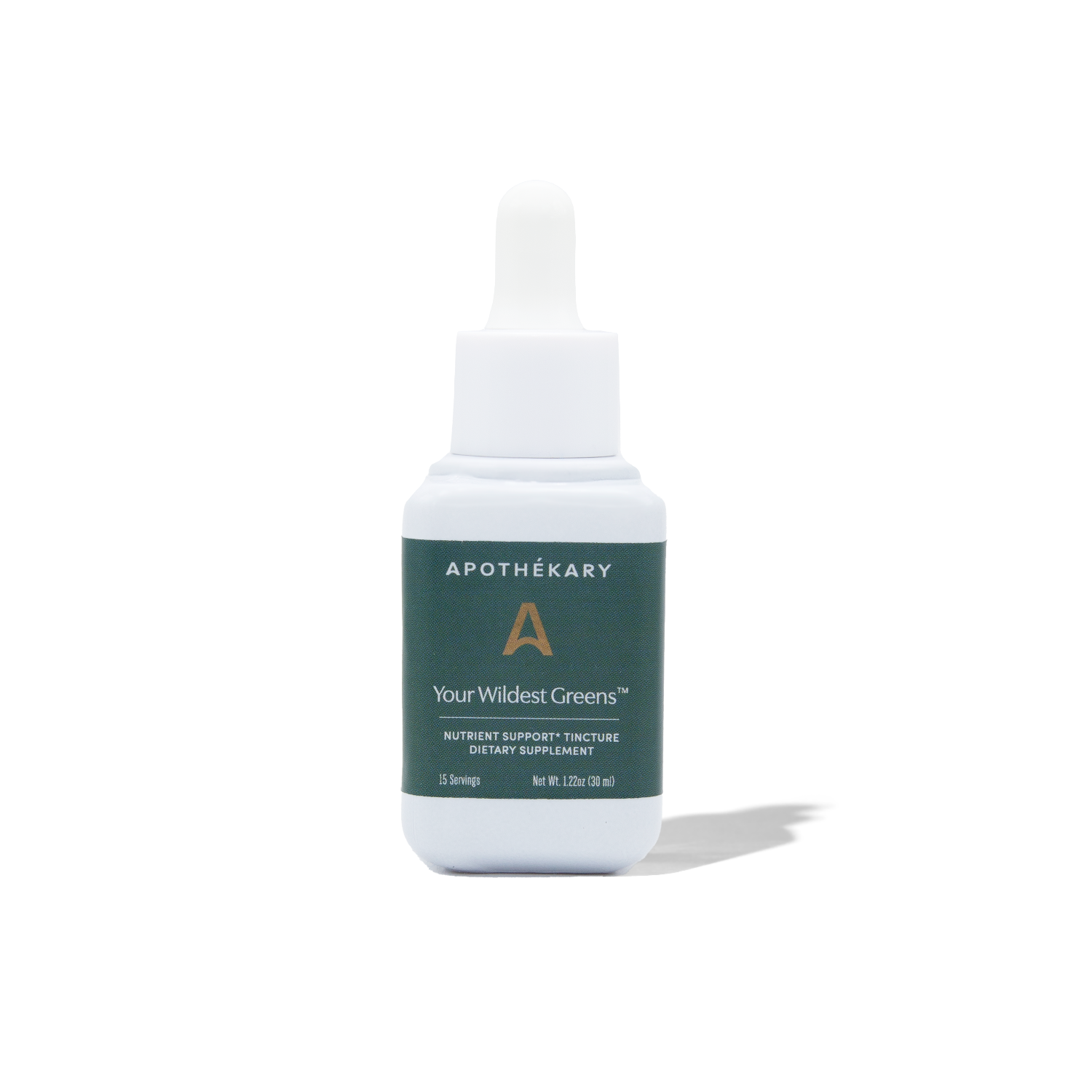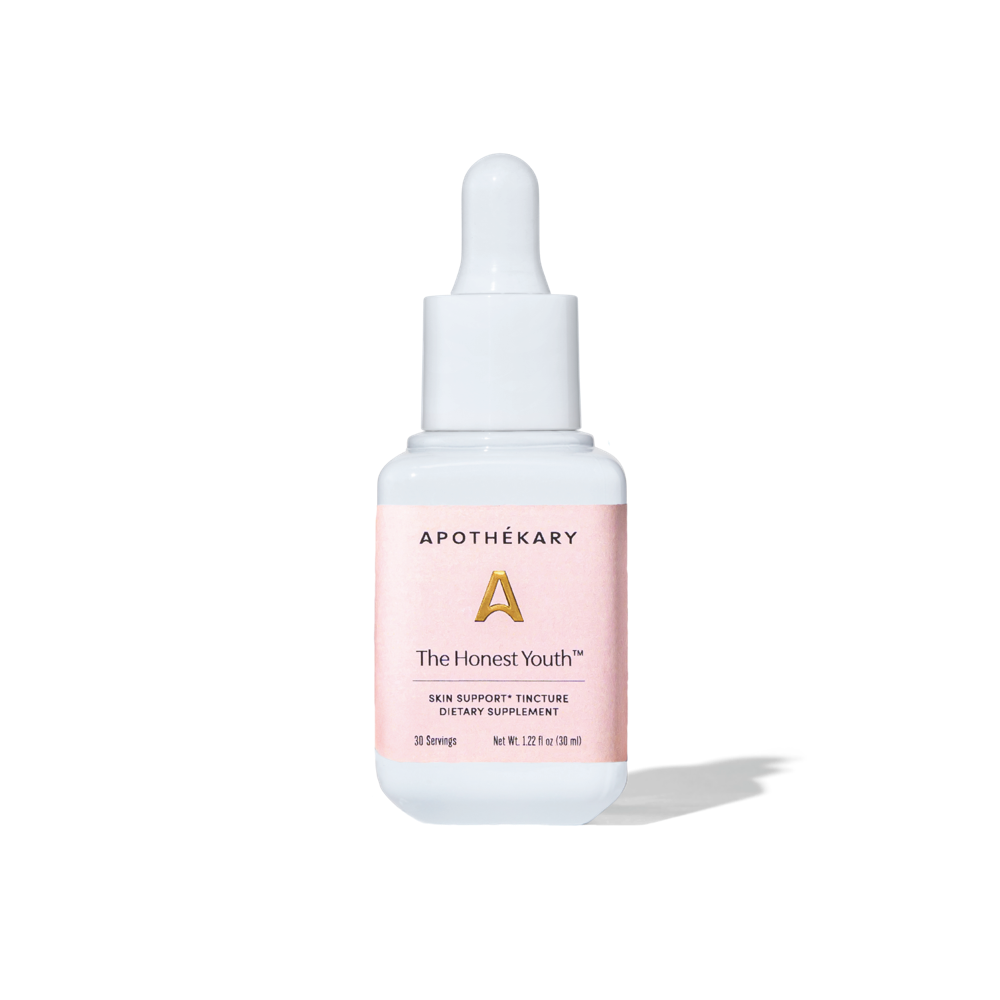For over 25% of Americans, springtime can mean irritating sniffles and itchy, watery eyes. Pollen from trees, grasses, and other plants travel through the air and end up in our mucus membranes, leading to uncomfortable seasonal allergic rhinitis a.k.a. hay fever. The allergen, in this case, pollen, leads to the reactivity of our immune system. To flush out these irritating invaders, our body goes on the defensive, releasing histamine chemicals that can lead to a runny nose, itchiness, and watery eyes. A minor response is helpful for the body but chronic reactions can lead to intense sinus pressure, inflammation, headache, brain fog, sore throat, and even stomach irritation.
Herbs can be our allies during spring allergy season to help support the body’s natural inflammatory response and ease its histamine response. The best way to keep allergies in check with herbs is to take them consistently before allergy season—ideally a month or more before your allergies start to kick in.
The top recommended Apothékary herbs for supporting a stronger immune system this allergy season:
- Reishi mushroom
- Nettle leaf
- Turmeric rhizome
- Astragalus root
Reishi mushroom
Reishi mushrooms have a long history of use in traditional Chinese medicine (TCM) for balancing vital energy1 and promoting longevity. Recent research2 has shown reishi’s value in curbing our response to allergens, modulating our immune systems, and easing inflammation. With consistent use, steroid-like compounds within reishi can help support the body’s natural inflammatory and histamine responses and in turn, reduce the effects of allergies and possibly asthma. We recommend starting regular reishi supplementation (5-7 days a week) 1 month before when your spring allergies generally begin. If your allergies tend to linger all year long, reishi could be a great long-term herbal ally.
Nettle leaf
Nettle, also known as stinging nettle, is an abundant and nutrient-rich herb. One study3 claims that it’s possibly the richest source of minerals found in plants! It has been shown to have a beneficial effect on the immune system as well as supporting our natural pathways4 of detoxification. Without proper elimination, toxin buildup can further aggravate seasonal allergies. A study5 revealed that with over 50% of participants, ingesting nettles reduced allergy challenges. Similar to reishi, I recommend starting nettles supplementation a month before allergy season.
- Herb featured in: Clean Sweep™, Your Wildest Greens™
Turmeric rhizome
Turmeric has bitter and stimulating actions that can help move digestive stagnation and ease inflammation. Curcumin—the main active ingredient in turmeric—has been well-researched for its ability to support immune system modulation and help support the body’s natural inflammatory response. Both actions are beneficial for decreasing our allergen response. In addition, studies have shown that curcumin6 can help alleviate nasal congestion from hay fever. While reishi and nettle are supportive to help lower our overall immune response over time–turmeric can aid us at the moment.
- Herb featured in: Claim to Flame®
Astragalus root
Astragalus is an adaptogenic 7root that has been utilized for thousands of years to help strengthen the body’s immune system. It has a particular affinity for the respiratory system so it can be particularly beneficial for people who suffer from frequent allergies or respiratory discomforts. A clinical study8 revealed the roots’ ability to help curb the uncomfortable feelings associated with seasonal allergies. The roots are also packed with prebiotic fiber to support the lower GI tract in feeding our beneficial gut bacteria. Keeping our good gut bacteria in balance is important to ward off potential pathogens and help ease inflammation.
- Herb featured in: Claim to Flame®
Herbs almost always work best in combination for synergistic effects so we recommend adding a combination of these herbs to your routine this spring! A helpful routine would be to take reishi in your morning coffee or tea, Bittersweet Symphony during the day with hot water and lemon, and add Follow Your Gut lattes when the allergies are at their worst.
Additional herbalist tips for curbing allergy discomfort
- Reduce allergy-triggering foods: Avoiding or reducing consumption of certain foods that can further increase mucus production: Dairy, wheat, processed foods, sugar, and alcohol
- Eat the rainbow: Increasing your intake of quercetin-rich fruits and veggies can lower histamine release, and increasing aromatic spices in meals helps thin out mucus.
Quercetin-rich foods: Broccoli, apples, tomatoes, berries, onions, asparagus
Aromatic spices: Ginger, garlic, cayenne pepper, cinnamon, rosemary, thyme, and sage - Steam away: Doing “herbal tea” face steams with aromatic herbs to break up sinus congestion: Rosemary, mint, lavender, and thyme are favorites used together or individually
- Rinse away: Saline neti-pot rises every few days to clear out pollen and break up clogged mucus
- Spring clean your body: Support your body's natural detoxification pathways (especially the liver) because improper elimination can make inflammation and allergies worse
https://pubmed.ncbi.nlm.nih.gov/22593926
https://pubmed.ncbi.nlm.nih.gov/24948193
https://www.ncbi.nlm.nih.gov/pmc/articles/PMC4708629
https://www.sciencedirect.com/science/article/abs/pii/S094471130470241X?via%3Dihub
https://www.mountsinai.org/health-library/herb/stinging-nettle
https://pubmed.ncbi.nlm.nih.gov/27789120
https://www.mountsinai.org/health-library/herb/astragalus
https://pubmed.ncbi.nlm.nih.gov/19504468






